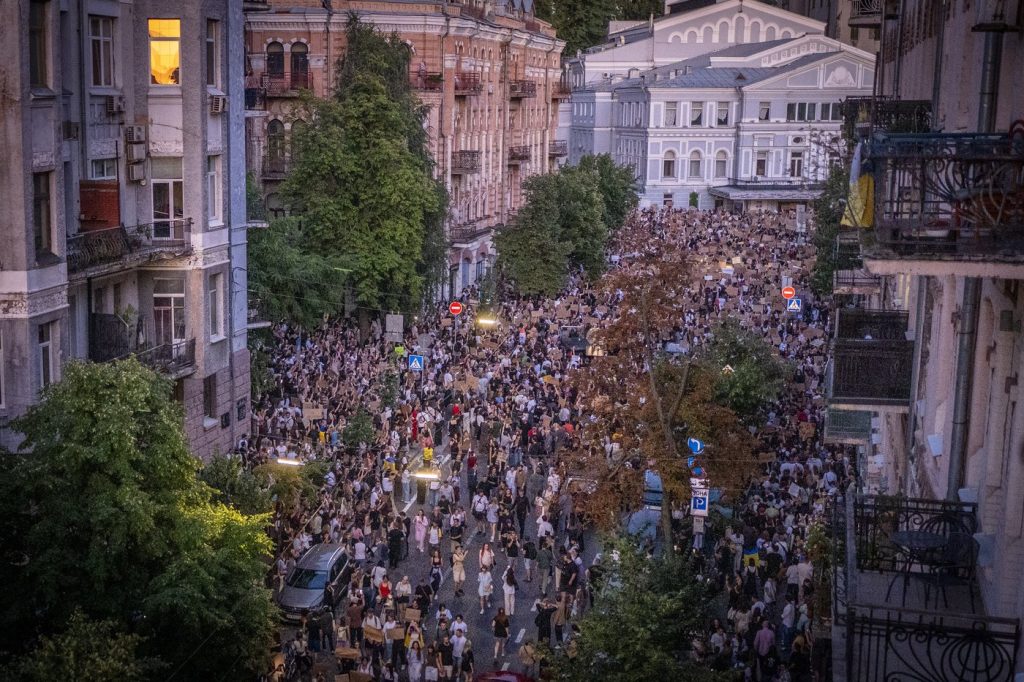KYIV, Ukraine (AP) – Opponents of a controversial new law in Ukraine, which they claim undermines the independence of the country's anti-corruption watchdogs, have organized street protests for the third consecutive day. This demonstration occurred as President Volodymyr Zelenskyy attempted to mitigate the situation by promising legislative safeguards aimed at reinforcing the rule of law.
In a recent meeting with leaders from Ukraine's critical anti-corruption and security agencies, Zelenskyy assured that he would act on their recommendations by proposing a new bill in Parliament. "And very importantly: all the norms for the independence of anti-corruption institutions will be in place," Zelenskyy remarked during his nightly video address late Wednesday.
Despite acknowledging the backlash surrounding the new corruption law—which drew criticism from European Union officials and international rights organizations—Zelenskyy did not commit to revoking the legislation he had previously approved. The law, adopted earlier this week despite calls for a veto, tightens government oversight of two essential anti-corruption agencies. Critics warn that this move could severely diminish their independence and grant Zelenskyy's inner circle increased control over investigations.
The ongoing protests do not seek Zelenskyy's ouster but represent the first significant anti-government demonstrations since the onset of the war. This unrest emerges at a challenging time for Ukraine, which is engaged in a three-year struggle against Russia's invasion, facing intensified military assaults and uncertainty over foreign military aid commitments.
As Russian forces ramp up their offensive efforts against Ukrainian frontline defenses, they also escalated their bombardment of Ukrainian cities. Amidst these challenges, Ukraine's quest for increased military support from the United States and reliance on European allies remains uncertain, with no end to the conflict in sight.
On Wednesday, delegations representing both Russia and Ukraine met in Istanbul for a third round of negotiations in a series of talks. However, these discussions were brief and yielded no substantial breakthroughs. Earlier, Zelenskyy emphasized the necessity of the new legal framework for a more effective crackdown on corruption—a vital element for Ukraine's aspirations for European Union membership and the continuation of essential Western aid amid wartime efforts.
"Criminal cases should not drag on for years without verdicts, and those working against Ukraine must not feel comfortable or immune from punishment," he stated, underlining the importance of swift legal recourse.
Meanwhile, Russian aircraft carried out aerial attacks on Kharkiv, Ukraine's second-largest city, dropping powerful glide bombs that resulted in at least 16 injuries, including a 10-year-old girl experiencing acute stress. Additional strikes were reported in Odesa and Cherkasy, where drone and missile assaults injured 11 people, including a 9-year-old, and damaged historical sites and residential structures.
In response to the escalating situation, Ukraine has intensified its own long-range drone operations targeting Russia, utilizing domestic technology. A recent Ukrainian drone strike on the Black Sea resort of Sochi reportedly resulted in the deaths of two women and injuries to at least 11 other individuals, alongside damage to an oil depot, according to local authorities.











